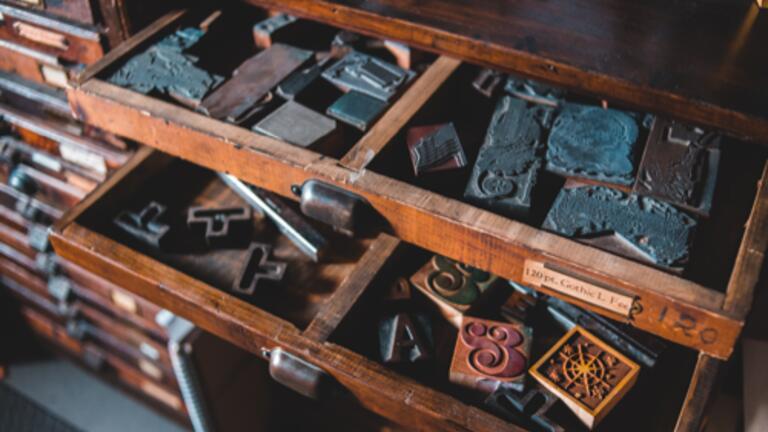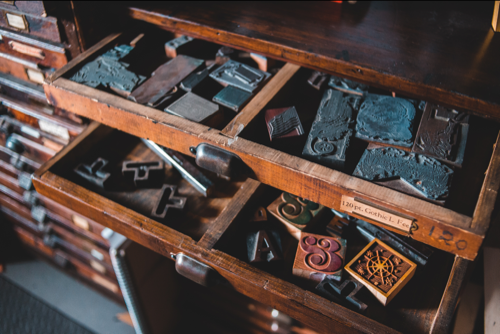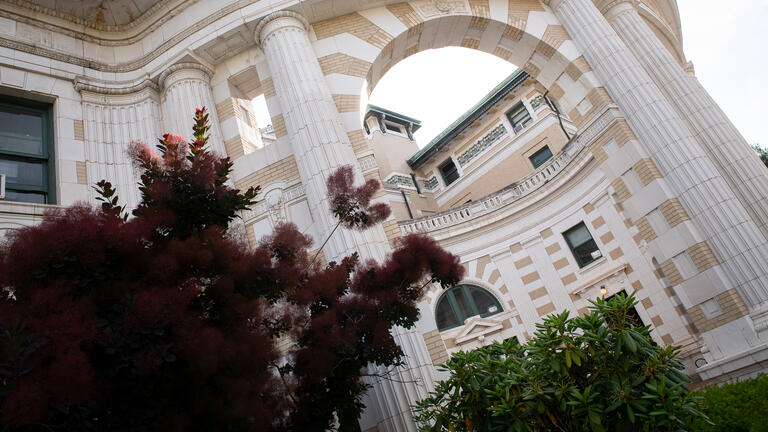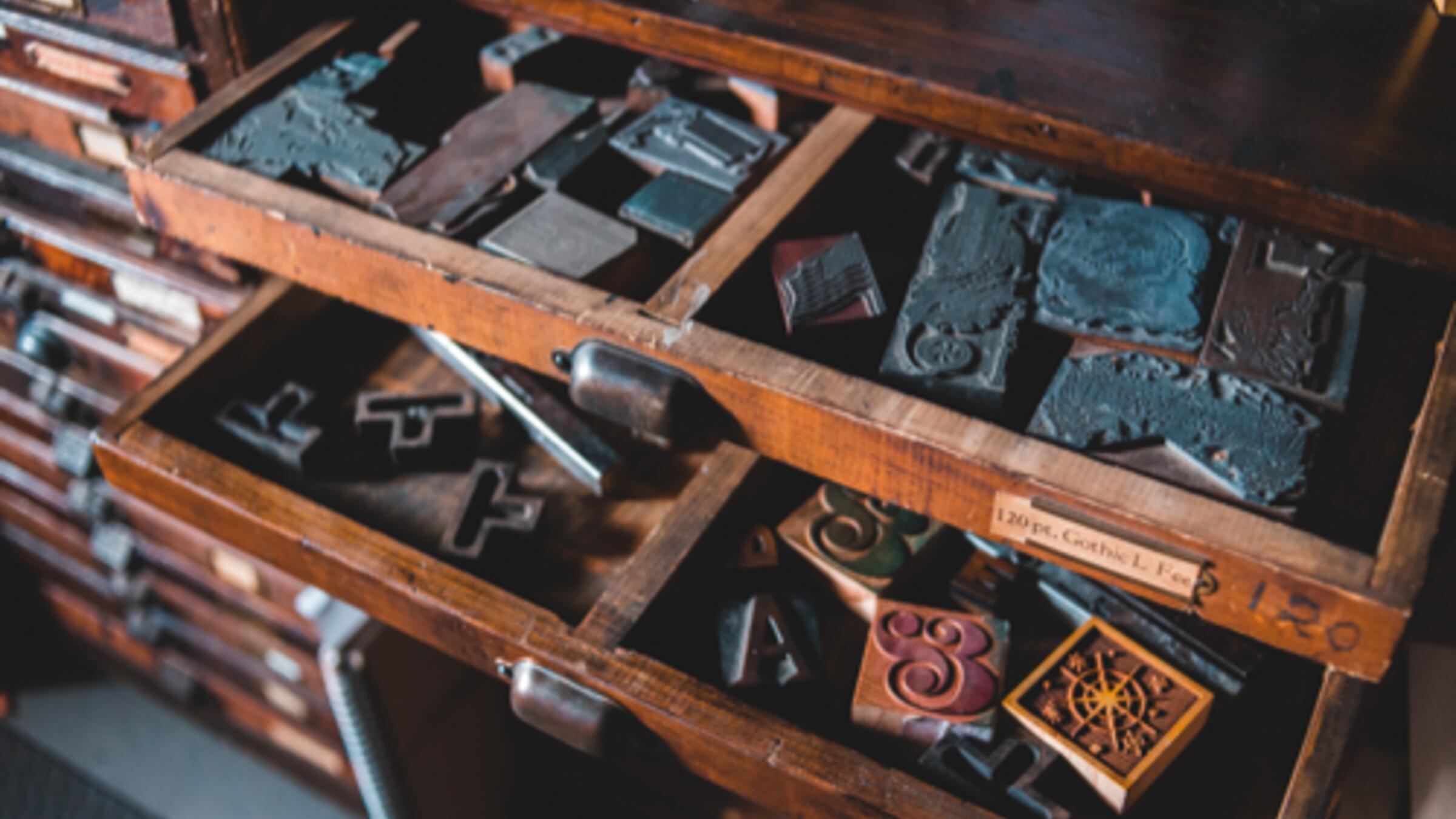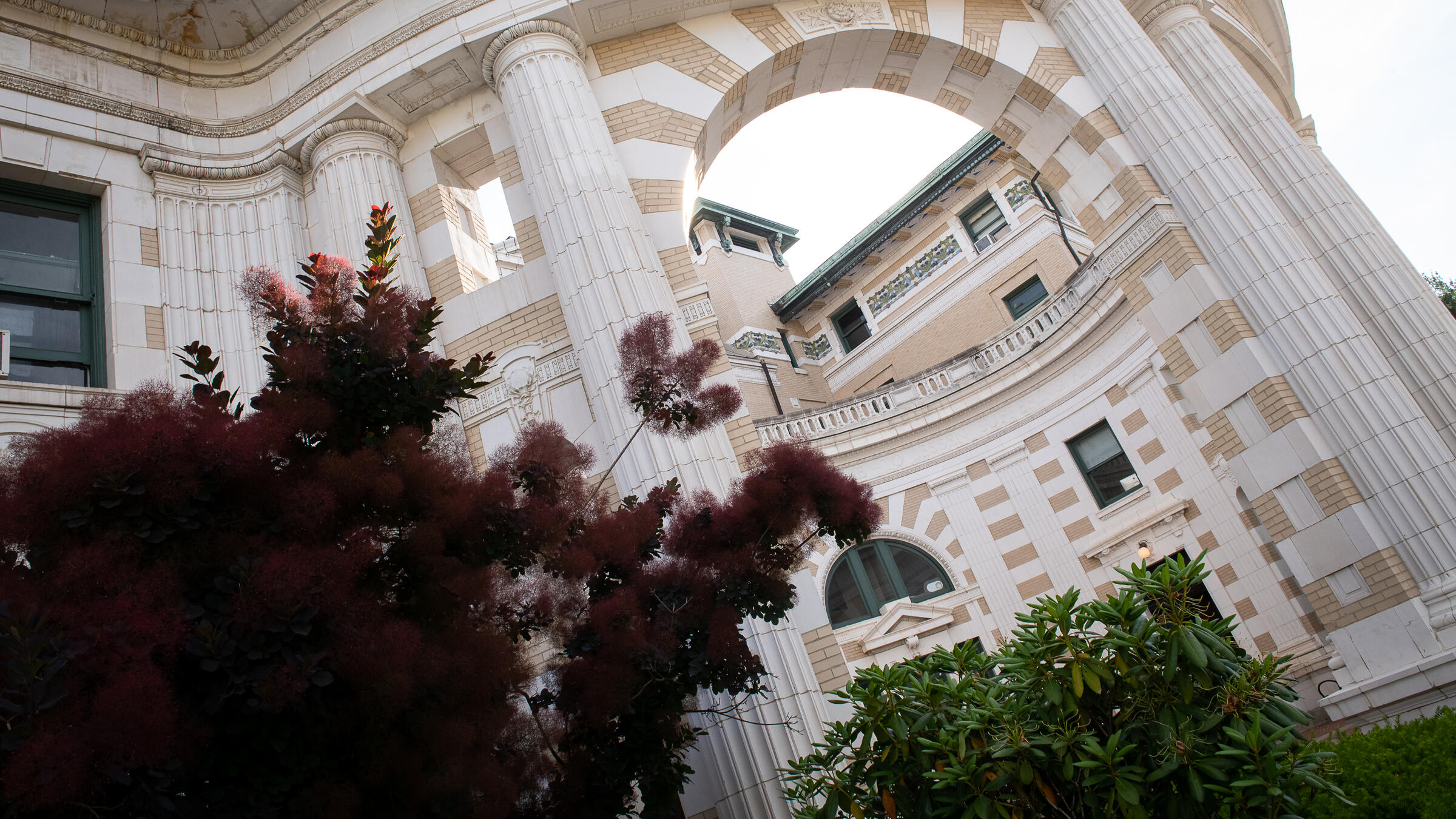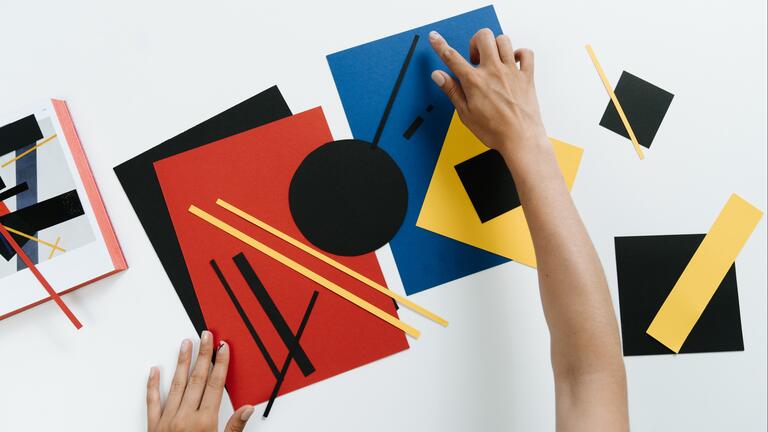
Design at CMU
Optional photo credit © Lorem Ipsum
The School of Design is among the oldest design programs in North America. We are located within Carnegie Mellon University (CMU), a highly ranked tier one research university in Pittsburgh, Pennsylvania, USA, celebrated for its unique assembly of colleges of the arts, engineering, sciences, humanities and social science, and public policy.
Jump To...
Studying Design at CMU
At Carnegie Mellon University's School of Design, we approach design education with an emphasis on humanity and sustainable systems. CMU is a top-ranked multidisciplinary research university where design students have access to faculty and resources from a variety of fields, which helps them develop a broad and holistic understanding of design.
Our programs attract students from all over the world, with a variety of backgrounds and interests creating a rich and diverse learning environment where students learn from each other and build strong professional and social networks. Knowing this, our education model incorporates broad perspectives — recognizing that throughout your career it will be essential to work collaboratively across disciplines in fields as varied as journalism, engineering, fine arts, social work, computer science, anthropology, psychology, and business.
The School of Design's alumni go on to some of the most desirable positions in the field, with multinational companies, design firms, and nonprofits. Our graduates enter the field having the mindset and technical and collaborative skills to contribute to identifying today’s real-world problems and opportunities, and respond creatively with innovative propositions and solutions.
Our Degrees
Our degree programs, which consistently rank among the best in the world, are scaled to prepare students at the undergraduate and master’s levels, and the doctoral level where we are one of the few schools in the U.S. offering a PhD in design. (second option for this block below)
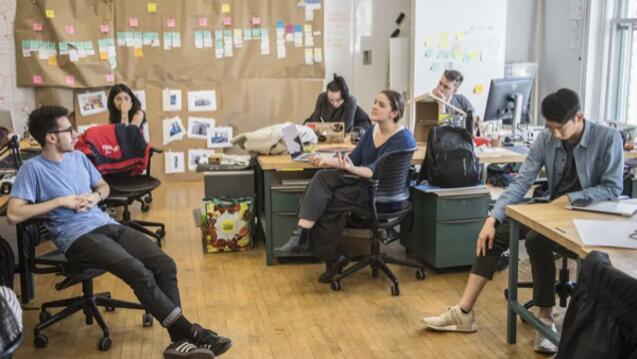
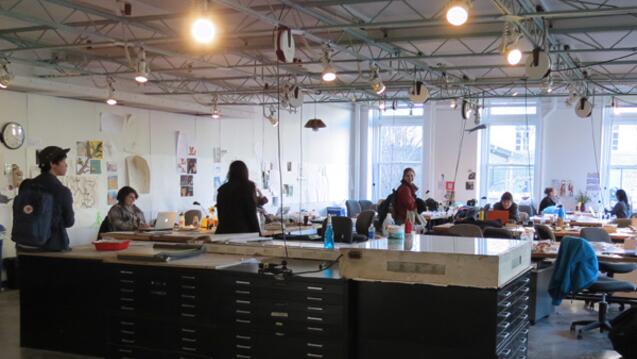
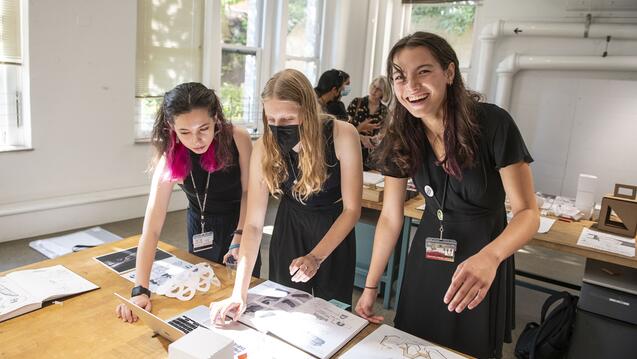

Our Degrees
Our degree programs, which consistently rank among the best in the world, are scaled to prepare students at the undergraduate and master’s levels, and the doctoral level where we are one of the few schools in the U.S. offering a PhD in design.
CMU design graduates are employed in a wide range of industries, including:
- Technology
- Consumer goods
- Healthcare
- Education
- Government
- Nonprofits
They work as designers, researchers, educators, and entrepreneurs at places like (ADD LINKS) Whirlpool, Volkswagen/Audi, Motorola, Apple, Microsoft, Google, Facebook, Skype, Pinterest, IDEO, R/GA, Isobar, the Mayo Clinic, and the Carnegie Museums of Pittsburgh, to name a few.
Throughout its history, the School of Design has led the evolution of design craft, pedagogy, research, practice, and ultimately the discipline. It aspires to continue its impact on the field of design moving forward.
Campus & Student Life
Love where you learn.
Confluence
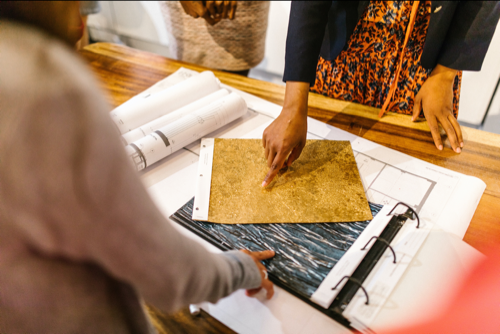
Each year more than 70 of the country’s top companies attend Confluence, the School of Design’s career event, to tap into our pool of talented graduates. In the weeks leading up to Confluence, our students work closely with faculty advisors to prepare their resumes, portfolios, and interview skills. Students have the chance to speak with prospective employers, discuss their work, and take them on tours around campus.
Confluence - 2024
February 16-17, 2023
Thursday, February 16
- Confluence, 10am-1pm - Margaret Morrison Carnegie Hall
- Creative Arts Career Fair, 2:30-6p - Wiegand Gym, Cohon University Center
Friday, February 17
- Continuing conversations at the discretion of interested employers
If you’ve never attended Confluence before, you might anticipate a typical career fair with booths, students with stacks of resumes, and other normal sites. Confluence, however, is anything but your typical career fair. Instead, students open the door to their studios to showcase their work, talk about what their passions are and how they manifest in their designing, and what they hope to find in full-time or internship opportunities.
Confluence takes place within Margaret Morrison Carnegie Hall with dozens of students excited to engage with employers around design work, career aspirations, and professional opportunities. Employers are welcome to browse our undergraduate and graduate student profiles before and after the event, but Confluence exists to bring seasoned and young professionals together in a hands-on, exciting way. No matter how you meet CMU’s Design students and familiarize yourself with their work, you and your organization won’t regret getting to see what we do here at the Carnegie Mellon University School of Design.
Employer Registration - Confluence
Deadline: February 14
Employer Registration - Creative Arts Career Fair
Deadline: February 11
Questions? Contact Caedyn Busche from the College of Fine Arts Career and Professional Development Center cbusche@andrew.cmu.edu
Diversity, Equity, & Inclusion
We celebrate our diverse population and are committed to growing and sustaining a culture of diversity, equity, and inclusion. Our commitment in the School of Design is to nurture, support, and enable all students, staff, and faculty to develop to their full potential. We value collective strength and difference, while recognizing that the School and the field of design have more work to do to embrace other ways of knowing, doing, and being.
We recognize the force that design and designers can be in the world, and believe that it is important that we cultivate a culture of inclusive collaboration to grapple with the complex problems facing society today. Understanding and welcoming our differences helps position designers and design to address imbalances, injustices, and inequity in the world.
We commit to ongoing efforts to recruit and retain students, staff, and faculty from all communities, cultures, and backgrounds, and to develop an inclusive curriculum that acknowledges and celebrates diversity.
This work is a living process, and together we will leverage the intellect, talents, and passions of our community to continue learning and taking thoughtful and meaningful actions toward these goals of diversity, equity, and inclusion.
-
Learn more about DEI within the College of Fine Arts.
-
We welcome you to reach out if you have any feedback, concerns or questions. You can reach us at cfa-dei@andrew.cmu.edu.
-
A student, staff, faculty member, third party, or campus visitor may report a Bias Incident to the Office for Institutional Equity via this link.
-
Underrepresented
People who have historically not had representation because of barriers to inclusion. These might include factors such as race, ethnicity, gender, gender identity, gender expression, sexuality, religion, ability, socioeconomic status, culture, age, and/or livelihood, etc.Diversity
At the School of Design, diversity is defined broadly to mean the presence of difference within our contained environments.Equity
Equity recognizes that when people come together in groups, power is unequally distributed. Some individuals have advantages while others have disadvantages. Equity, as a process, is the very intentional approach organizations take to ensure that everyone has access to the same opportunities and that those starting from disadvantage are given the chance to grow, contribute, learn, and develop.Inclusion
Inclusion supports individuals with different identities to feel they belong within the group because they are valued, relied upon, welcomed, and empowered.Allyship
Allyship means showing up to act in solidarity with disempowered peoples without centering yourself or worldview. We need people to do this even if they cannot fully understand what it’s like to be disadvantaged because of race or ethnicity, gender, sexuality, ability, class, religion, or other markers of identity.School of Design Community
Faculty, Staff, Students, Researchers, and AlumniSocial Justice
Social justice can be defined as the intentional work, policy and practice to promote systemic equality, equity, respect, and the assurance of rights within and between social groups, and communities.Source for definitions of Diversity, Equity, and Inclusion: How to Talk about Diversity, Equity, and Inclusion By Alida Miranda-Wolff


